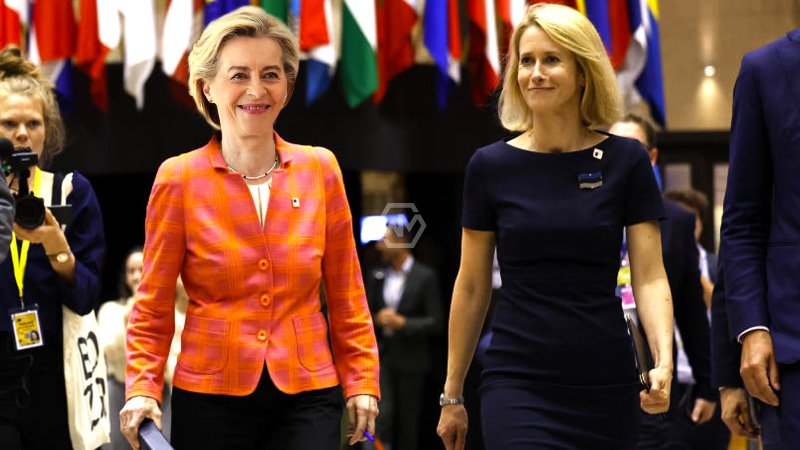- Ursula von der Leyen reappointed as President of the European Commission.
- Antonio Costa and Kaja Kallas take on new top roles in the EU.
- Far-right leaders criticize the appointment process.
European Union leaders have agreed on a new leadership trio, reappointing Ursula von der Leyen as President of the European Commission for another five years. Antonio Costa of Portugal has been appointed as President of the European Council, and Kaja Kallas of Estonia will serve as the EU’s top diplomat. These appointments aim to balance geographic and ideological representation within the bloc.
New EU Leadership Faces Challenges and Criticism
The decision faced opposition from far-right politicians, notably Italian Prime Minister Giorgia Meloni and Hungarian Prime Minister Viktor Orban. Despite their criticism, the appointments were approved by a majority, ensuring that von der Leyen and Kallas will likely be confirmed by the European Parliament in the coming weeks. This leadership shift occurs amidst ongoing challenges such as the war in Ukraine and internal political divisions.
Antonio Costa, the former Prime Minister of Portugal, is known for his negotiation skills and will play a crucial role in brokering deals within the often divided European Council. His appointment reflects the EU’s attempt to maintain a balance of power among its 27 member states. Meanwhile, Kaja Kallas, as the new top diplomat, will focus on maintaining European unity amidst global instability and the ongoing war in Ukraine.
The appointments have sparked controversy, particularly from far-right leaders like Italian Prime Minister Giorgia Meloni and Hungarian Prime Minister Viktor Orban. Meloni criticized the selection process for excluding nationalist parties from the decision-making. Orban echoed these sentiments, claiming that the appointments do not reflect the recent shift to the right seen in the EU Parliament elections.
Despite the opposition, the appointments were approved by the majority of EU leaders, and von der Leyen and Kallas are expected to be confirmed by the European Parliament. This leadership transition comes at a critical time for the EU, which faces significant internal and external challenges. The new leaders will need to navigate these issues while maintaining cohesion within the bloc.
The new EU leadership team, while facing criticism and significant challenges, is poised to guide the bloc through a tumultuous period. Their success will depend on their ability to foster unity and address pressing issues effectively.
“My aim is definitely to work for the European unity.”
— Kaja Kallas



